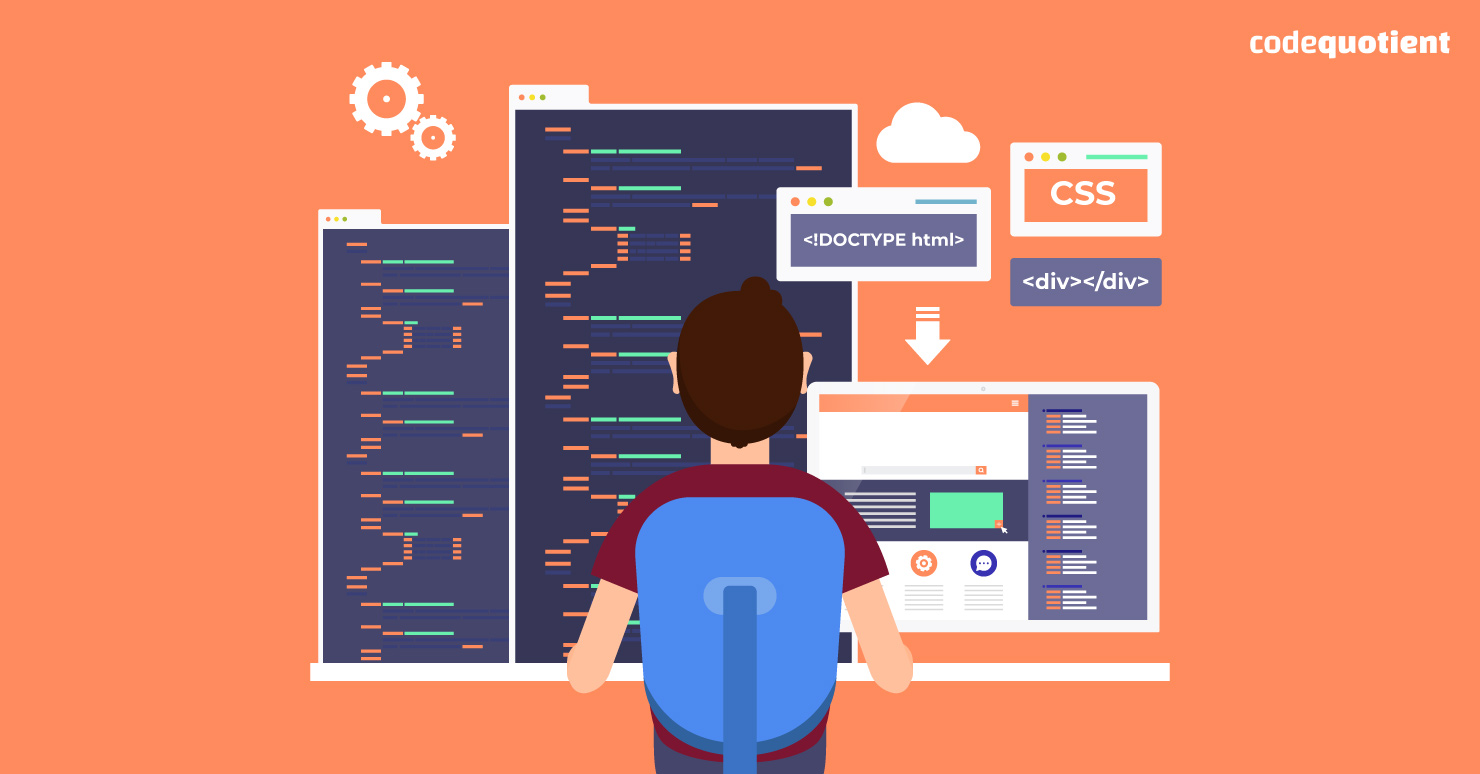What job can I get after I complete the Full Stack Developer course? This is a common question and an apprehension among the coding community in India. A quick search on any job portal will confirm this. This is justified as every student looks for job assurance before enrolling on a course. Another truth is all IT companies, regardless of their size, want to invest in a good Full Stack Developer. It is a hot job in the 21st Century market and will continue to dominate the industry in the coming years.
But before we talk about the future scope of full-stack developers, let us first clarify who exactly a full-stack web developer is and how they can contribute to a company.
What is Full Stack Development?

The simplest explanation for full stack development is,
Front-End + Back-End = Full Stack
The front end is the client end of a website, application, or software with which customers can see and interact. The back end is the server end and includes everything that communicates between the database and the browser. Full stack development combines the responsibilities and perks of both these fields.
What does it take to be a Full Stack Developer?
In a nutshell, full-stack web developers are the ‘jack of all trades’ with a special difference. They must start as masters in one or more front-end and back-end languages. Knowledge of, preferably, two front-end and two back-end languages is a prerequisite for being an efficient developer.
Common front-end languages include C#, HTML, CSS, and Javascript, while back-end developers also use PHP, Python, .Net, etc.
Common full-stack options include MEAN Stack (MongoDB, Express AngularJS, Node.js), LAMP (Linux, Apache, MySQL, PHP), and MERN (MongoDB, Express, React, Node). Ruby on Rails and Django Stack are also often used.
The chief quality that sets full-stack developers apart is their versatility. Their responsibilities can include but not be limited to:
- Undertaking end-to-end web architecture.
- Developing functional and experience with databases to provide support to the back end.
- Optimizing user experience by designing a visually appealing front end.
- Debugging, ensuring smooth cross-platform interaction.
- Work on security, data protection, and responsiveness of the applications.
- Collaborating with designers to enhance the front end of their learning journey.
- Giving directions to other development team members.
Why do companies want a Full Stack Developer?
Since a full-stack developer specialises in multiple domains, companies prefer investing in a good full-stack developer rather than an army of specialists working on specific problems. This saves the company money and reduces the overall turnaround time.
With experience and full-stack developer skills, they can solve a variety of problems. Given their versatility, developers fit well in any role they choose. The ability to shift through multiple roles gives full-stack developers great flexibility. The entire operation is under their control, and they often have things their way.
Where do Full Stack Developers work?
Startups and mid-sized companies are the best places for budding professional developers. Since the company’s operational costs need to be limited, a good full-stack developer can save them a lot of expenses.
Even large companies and MNCs have realised the huge benefits full-stack web developers can offer. So it is not uncommon for MNCs to actively recruit full stack developers.
According to an article by Glassdoor, the starting salaries for full-stack web development jobs can be INR 4 lakhs and go up to INR 10 lakhs as the individual gains 4-5 years of experience. Further, experienced full-stack developers can easily command annual packages of INR 13 lakhs and above.
With this profession in demand globally, students and professionals can also seek opportunities abroad. Global exposure, networking, and continuous upskilling can help a budding full-stack developer launch exciting careers abroad.
The Career Progression of a Full-Stack Developer
The best part about studying full stack is that it allows you to explore. Python, R, Ruby, Node.js, MongoDB, Django, etc., are quite in demand. A good command of these programming languages, along with development projects, unlocks great potential.
Knowing Full Stack allows you to gain transferable skills which you can apply to any industry. Startups and mid-sized companies are the best places. For example, knowing Python helps you grasp the basics of Data Science more quickly. Full Stack developers are often required in:
- Web development
- IT sector
- Fintech
- Edtech
- Machine Learning
- Artificial Intelligence
- Data Analytics
- Web Design
- Software Solutions
- Robotics
How can CodeQuotient help you become a Full Stack Developer?
The job profile of a full-stack developer requires a wide range of knowledge. The sheer expanse of the subject can be overwhelming, but a good foundation helps a lot if a student has one.
At CodeQuotient, we offer our software developer students an in-depth full-stack development and front-end development programme. Our students learn by ‘implementation’, that is, lots and lots of projects!
These projects typically involve working in teams. So, from day one, a student has an office-like environment in which to learn and grow. This helps enormously in getting accustomed to future workplaces.
A student is expected to create at least two LIVE projects, which can be shown on their portfolio. Potential recruiters have the option to execute these on the given platform. CodeQuotient’s mission is to make its students industry-ready and ensure they are productive from day one.
Furthermore, our instructors are professionals from leading companies. They not only act as mentors but can also give the students an insider’s point of view of what companies are looking for in budding full-stack developers.
A full-stack developer should be familiar with everything in the programming world — this includes staying on top of general trends and learning new languages and technologies.
The job involves knowing the latest applications’ functionality, debugging and optimizing user experience (among other things). A focused learning attitude is the key mantra of any successful web architect.
Associating with industry leaders can help you pick up things like these. CodeQuotient takes immense pride in producing successful alums.
If you’re ready to kickstart your career in full-stack development, enrol at our Software Engineering Bootcamp immediately!




